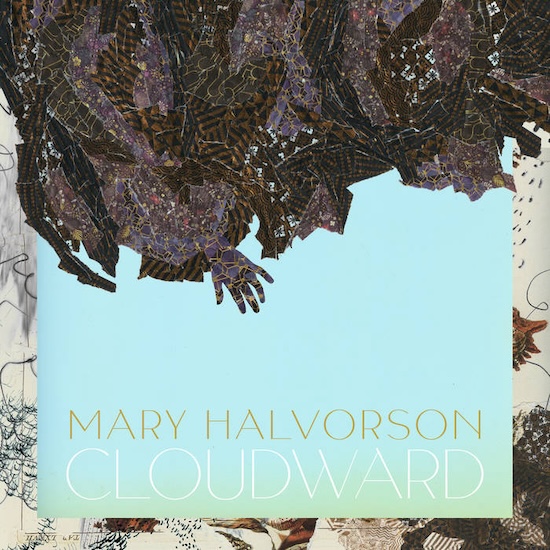Cloudward probably won’t jump out to familiar listeners of Brooklyn-based jazz guitarist Halvorson’s previous albums as being particularly unusual in her catalogue. However, it’s probably the first where she sounds fully immersed in her band Amaryllis, which she originally composed music for in 2020 during the pandemic. Now, she finds herself still writing for the band, and the results are rich and increasingly organic-sounding. With the album a means to articulate the process of her band re-emerging after the pandemic, the cadence of the record does seem to replicate the sound of the city’s life gradually blossoming out into the streets.
With improv sextet Amaryllis in tow, featuring Patricia Brennan (vibraphone), Nick Dunston (bass), Tomas Fujiwara (drums), Jacob Garchik (trombone), and Adam O’Farrill (trumpet), the group create a thicket of sound around Halvorson’s agile, but muted riffs. They become an immediate, bracing presence on the album’s opening track, ‘The Gate’, before being cut short on its follow up ‘The Tower’, a number more concerned with demonstrating the distinctive personality of Halvorson’s guitar. Accompanied by the minimal presence of a vibraphone, she first demonstrates her virtuosity in a strumming pattern that seems to trill like a bird, before providing a more chord-based bed for the rest of her band to emerge into the conversation.
It’s hard to compare Halvorson’s playing on this album with that of other jazz guitarists. You could liken her playing to Wes Montgomery a little thanks to its warm, comforting strumming patterns. Ut seems a bit less rock-influenced than some of her previous work. On Cloudward, her guitar almost coughs and splutters. ‘Incarnadine’ appears to feature a granular pedal or effect on it. All in all her rhythmic style is singular. It’s also on this track that labelmate Laurie Anderson makes an appearance, presumably as a violinist (she’s only credited by name). Listeners may be surprised that she’s not here to provide a spoken word accompaniment (Halvorson took a lyrics-based approach on Code Girl with the singer and jazz musician Amirtha Kidambi but hasn’t fully returned to this idea since).
Upbeat, curious, and inquisitive, Cloudward makes for a great city walking album. It strikes the perfect balance between being jazz that’s not too impenetrable, while also being full of interesting surprises (primarily in terms of the language of Halvorson’s own playing). It feels like walking around a block to be confronted with a street that has a slightly different feel to the one that you have just left. Halvorson’s approach to composition is both soft and hectic in a seemingly alternating fashion. She knows just when to pique your interest and when to draw you into what feels like the warm, informal ambience of a Brooklyn jazz club at night.


